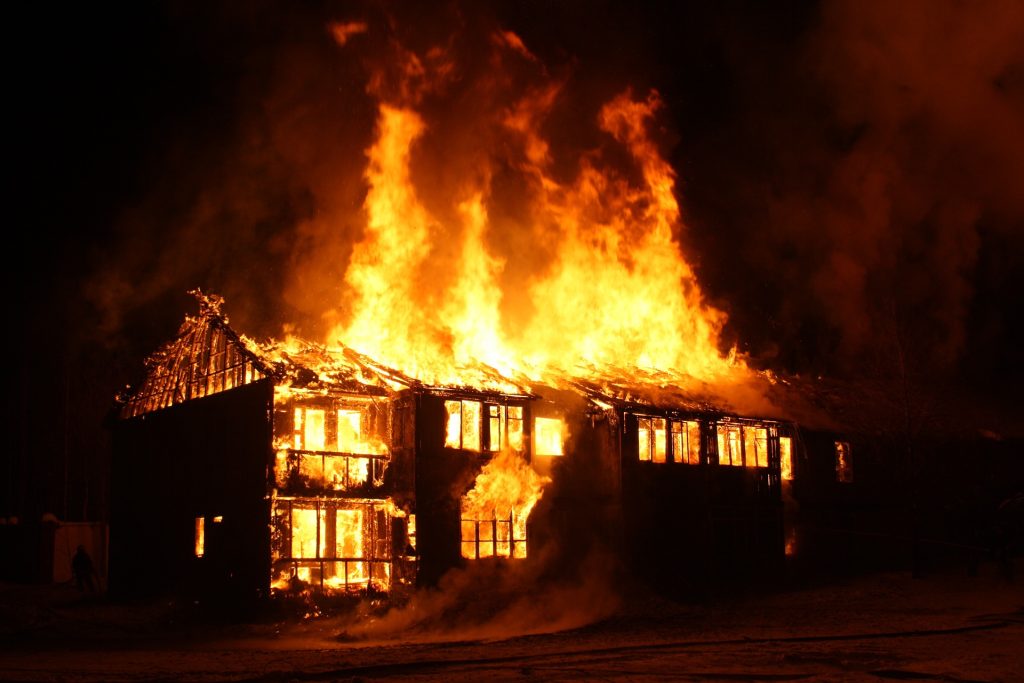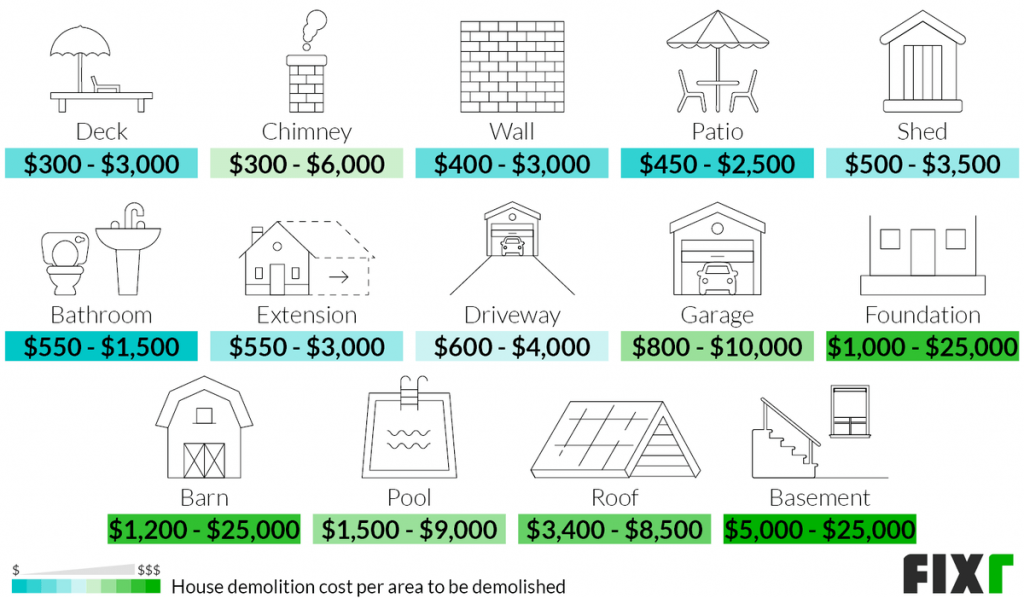
Today I’m going to talk to you about filing a home insurance claim. There are two different situations I’m going to talk about. The first one will be a devastating or substantial loss where you can’t live in your home anymore. The second will be more of a minor claim or partial loss. I want to ensure you understand what to do when a claims situation arises and how an insurance agent, especially an independent insurance agent, will help you. If you’ve got an 800 number that you’re calling to report your claims, they’re not going to give you this sort of advice that I’m going to provide you with right now. But an independent insurance agent (a good one) will advise helping direct you to make the wisest decision so that it doesn’t cost you more in the long run. And I know you probably don’t understand what I’m talking about right now, but we’re about to dive in, and it’ll all come together!
Devastating/Total Home Losses
First, we’re gonna talk about devastating loss. That’s gonna be a claim where you can’t live in your house anymore. That could be ANYTHING. Here are some everyday claim situations that have happened to people:
– someone runs a car into the house
– a tree falls on your house
– extreme storm damage
– total fire loss
– tornado
– hurricane

The point is that many different things can happen that would render your home unlivable. So, you’re gonna have to live somewhere else. So what do you do?

FIRST THING TO DO AFTER A MAJOR LOSS TO YOUR HOME
Call whoever the emergency department is to ensure they get there and respond to that. So, if the electric department can shuttle power or gas, that can shut off gas, water, or whatever. If it’s the fire department, you can always just start with the fire department, call them, and get them to respond to your home to take care of what needs to be shut off so that it doesn’t get any worse.
SECOND THING TO DO AFTER A MAJOR LOSS TO YOUR HOME
Call your insurance agent as soon as you get that contained. You need to call them, call your independent insurance agent and tell them what happened, so they can get an adjuster on the job as soon as possible. Suppose it’s some sort of water damage. In that case, they need to start getting restoration as quickly as possible to help minimize the damage that may be happening to your home. So the first thing is you’re going to report that loss. They’ll ask you specific questions to understand what’s going on and see what needs to be the next steps. Typically, they will take information from you, like contact information, maybe emergency contact information. They will then report this to the insurance company and let them know. The insurance agent will then explain what is going on and request an adjuster to come out and access the damage. Then write a check to start living somewhere else until the home is liveable again. The agent will then get the adjuster’s information, such as their name, email address, and phone number, and also give you some next steps on what the process will look like. Also, suppose a restoration company is going to respond. In that case, they’ll get that information for you, and then they’ll relate it back to you and let you know the next steps.
NEXT STEPS AFTER YOU HAVE FILED THE CLAIM
The next step is going to be their insurance company is going to get an adjuster that’s going to get with you to start working on your claim. They’re gonna work with you, they’re gonna work with your agent, they’re also going to work with whatever the fire department is police department or wherever those other utility departments are to start determining, Hey, what happened, how much damage has happened here? And they will work with you and ask what you need to ensure that you and your family are safe and have another place to stay. They will start assessing how much damage and how long it will take to get you back in your home. So that way they can know if they need to either find we needed to put them up in a hotel for a few days or we need to find another place for them to live either give them money for a new house or give them money for rent so they can live somewhere else.
While this is being sorted out and repaired, the adjuster will communicate back and forth with you and let you know what they need to do. They probably will send somebody out to take a look and determine that depending on how much damage it is, and then they will let you know. This is how much money we think it will take to fix your house or replace it. This is how much money you have available for additional living expenses such as:
– food
– extra gas, because now you have to drive further.
– clothes
– toiletries
HOW WILL YOU START REBUILDING YOUR HOME?
Once the claim is sorted out, if it’s going to be repaired or completely rebuilt, they will pay you what’s called actual cash value first. That will be how much it would take to fix it minus depreciation. You probably have a replacement cost policy (hopefully you do). You’re sitting there scratching your head, thinking, okay, I know I’ve got a policy that says replacement cost, but I thought that meant they were giving me new for my old stuff?

Well, it does. But what they do is (this is what all insurance companies do) pay you a portion of it, you get it fixed, and then they will compensate you the rest of the cost of rebuild/repair minus your deductible. So, you’ll start getting estimates on how much it will cost. They’ll give you a payment for the amount of repairs that will take them then once you fixed it or repaired it, then you provide them with an invoice showing that you paid for it or a paid invoice, what I should say, that you give them so that they can cut you a check for the balance. That’s how it works. Once that is settled, you know the claim is taken care of, it’s closed out, and then you go on your way.
Sometimes you have disputes… such as, the adjuster came out, they thought it’s going to be this much, well, it’s going to be more, because of whatever reason. Depending on your policy, you may have guaranteed replacement cost because building costs have risen significantly in the last couple of years. If you’ve got guaranteed replacement cost, you just need to go back to your inspector and say it’s gonna cost more. We’ll make sure you communicate that with them. They’ll be able to reopen and resolve that with you to ensure that you’ve been taken care of and that all the expenses have been paid correctly. Still, you just need to communicate what’s happening, and they’ll take care of you.
Minor/Partial Home Losses
The second thing is going to be a minor loss. Maybe you got hail damage to your roof, and water is leaking on the inside. Or, say that a tree limb falls onto your roof and causes some damage, but you can’t tell for sure because the limbs are on it. Or maybe you’ve got water damage. Maybe the commode’s water overflowed, the pipe that feeds it bursts, or the hot water heater began leaking. And it’s done damage, right? You need to try to minimize that damage by calling the fire department, getting a tarp on your roof, or something like that. If you’ve got roof damage, you need to find a reputable roofer and call them and ask them to come to take a look at your roof. If they’re a good roofer, you know, take a look in Google or something like that and just see, do they have good reviews? Then, call them and ask them to come to take a look at it. And they’ll be honest with you and tell you, No, it’s just age or wear and tear, which is not covered under the homeowner’s insurance policy. Insurance is not a maintenance policy. But they may say yeah, you got some hail damage, but it’s pretty minor. Really, you lost just a couple of shingles. And really, you know, you might want to just pay for it yourself because it’d be about this much money. Or they may say yeah, you got a lot of hail damage. You should report this because they’ll probably give you a new roof well; okay, they’ll tarp your roof to ensure that you won’t have any additional damage.
Then you call your insurance agent and say, hey, look, you know, I’ve got hail damage. I talked to a roofer. They said yeah, I definitely got hail damage. Can I go ahead and report it? And then we’ll do that, you know, what about water damage? You might want to call a contractor just to come out and see how much it will cost to fix what was damaged. Because it might not be that much money, and maybe under your deductible or close? Nothing. What about if a tree falls on something like your fence or something like that? Again, call a contractor first, let them come out and look and see how much it will cost to fix it. Now, you know, I know what you’re thinking, as you’re sitting here and you hear me say anything like, well, I got insurance and a small deductible. Why would you suggest or not file the claim? I mean, are you just not one pay claims? That’s not it at all. Look, my job is to make sure that you’re taking care of when something happens. And I want to, but part of my job is to help you understand how insurance works and what is in your best interest. What’s in your best interest at the end of the claim and over the next three years is to make sure that you come out financially the best. So if it’s a large claim, or you obviously have some sort of roof damage, I’m going to tell you, Okay, let’s report this claim, let’s get that roof fixed. So that way, you don’t have any more damage.

But if it’s a small claim, I’m going to suggest you go ahead and pay it out of your pocket. And here’s why most insurance companies affect, you know, we’ll take care of claims as far as like rating goes, and one or two ways, you’re the one, they don’t give you a discount at all, for not having claims. And then whenever you have a claim, you get charged because now you have a claim because that’s your risk makeup. Every insurance company, you know, a person who does not have a claim should not pay as much as a person who does have claims, right? And it’s just not fair. So you know, I suggest you pay the $1,000. Because if you have $300 over five years that you got to pay, in addition to your premium, because you had a claim for $1,000, that will be $1,500. So you just saved $500 by paying it yourself, plus, you probably had a deductible anyway. And so, you may have only gotten a few $100 off of the claim. Anyway, look, I know that doesn’t seem right to you. But that’s the way insurance works. You file a claim, and you will lose any claims-free discount you had or get charged for a claim. Because that’s the second way, I told you there are two different ways. The first one is that they’ll give you a discount, but whenever you have a claim, you have a chargeable claim, and that’s any insurance company. The second way they handle it is they say, well, we’ll give you a claims-free discount upfront because you haven’t had any claims. And we’re not going to charge you for any claims. But he sees you lose that claims-free discount because you’re no longer claims-free. So they haven’t charged you. They’re charging you more in the sense of penalizing you for it. But you did lose your claims your discount because you’re not claims free anymore. So we’re gonna, you know, so make sure you call your independent insurance agent and talk to them about your claim, so they can give you directions. Because if it’s larger, they’ll tell you, Hey, turn the claim in. You will be better off filing that claim than doing the other. If you got an 800 number, you call them. They’re not gonna care about that. All you are just a number you call them, they’re just going to say, Okay, let’s report the claim reported. Then you find out that I shouldn’t report it because now my rates are going up. And then whenever you go shopping for insurance with another agent, or another company, that claim will follow you everywhere, because the all those things, they have to report it to this data pool, so that all insurance companies know about that claim. It’s going to follow you for five years. You’re gonna pay for that small claim for five years, then maybe you shouldn’t have if you had had an independent agent. So if you have a claim, and it’s a smaller claim, but you know, you still should claim it. Well, the process is gonna be similar to like the major one, you’re gonna we’re going to report that information to the adjuster will get with you will give you all the adjusters information, they will follow through, do an assessment, and then make sure that you’re going to get taken care of. They’ll pay ACV or actual cash value first, and you get the repairs done, show that you paid for it, and cut you a check for the balance. So that’s the claims process on a homeowner insurance policy.

Find out what is different about us today:
Text or call: 318-336-5202
Email reed@reedinsla.com
You can meet our team HERE
You can start a quote HERE
We’ll be glad to take a look at your insurance coverage in any of the states of Louisiana, Texas, Arkansas, and Mississippi.
Thank you,
Beaux Pilgrim, CEO

Beaux Pilgrim
Reed Insurance
